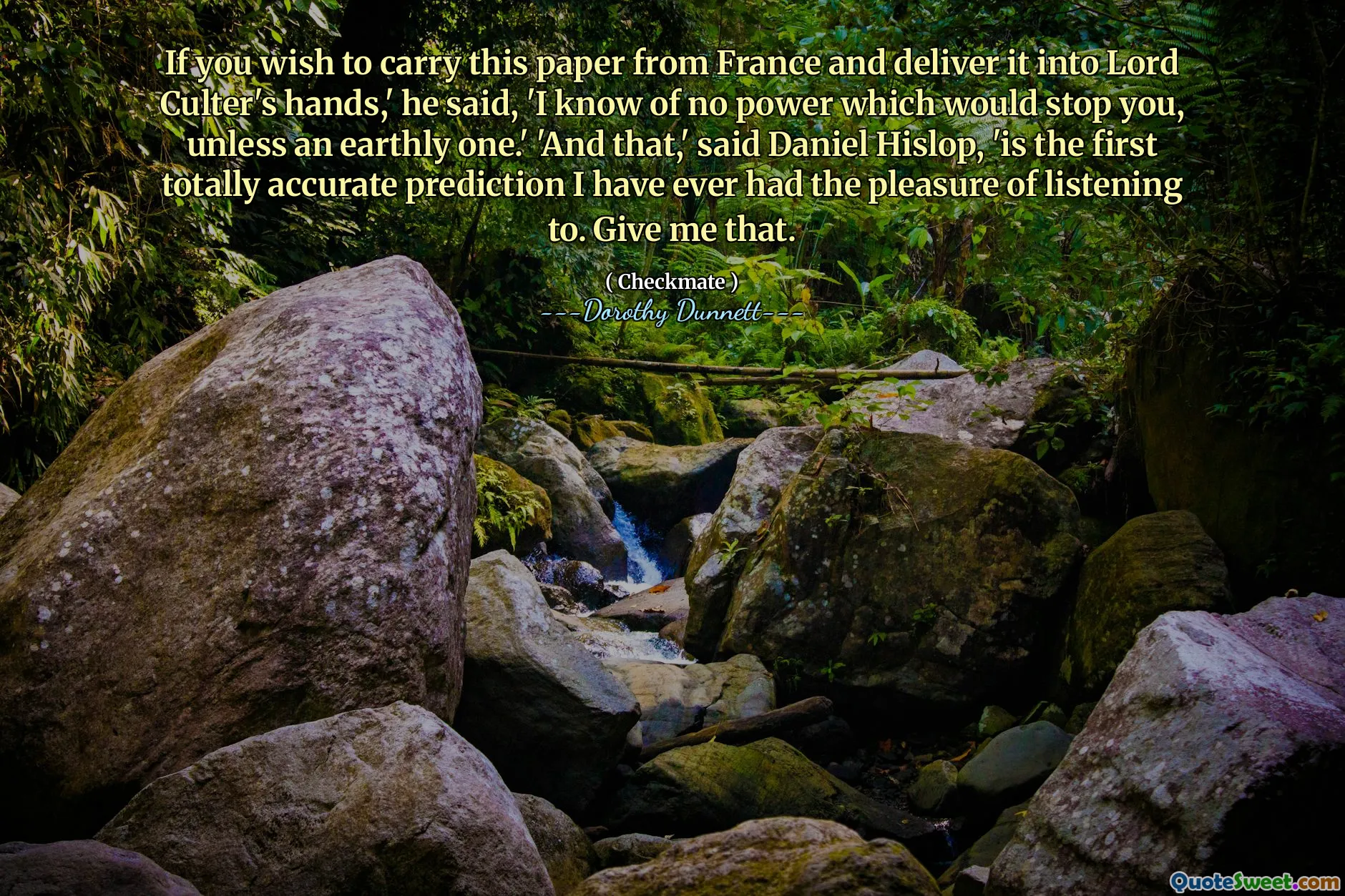
If you wish to carry this paper from France and deliver it into Lord Culter's hands,' he said, 'I know of no power which would stop you, unless an earthly one.' 'And that,' said Daniel Hislop, 'is the first totally accurate prediction I have ever had the pleasure of listening to. Give me that.
This quote illustrates a moment of keen insight and a touch of wry humor, encapsulating themes of power, prediction, and human limitations. The first speaker seems to challenge or tempt another character with the promise of freedom or success—implying that only a higher or divine power could prevent the act of delivering a crucial document. The mention of an 'earthly' power suggests the existence or potential influence of a divine force beyond mortal control, which adds a layer of philosophical reflection on human agency versus fate. Daniel Hislop's response adds levity and acknowledges the accuracy of that prediction, perhaps hinting at the unforeseen truth in such statements or the unpredictability of human judgment. This exchange offers a rich meditation on the nature of power—how it is perceived, challenged, and ultimately subject to forces beyond mere earthly authority. It also prompts reflection on how predictions and intentions often intersect with reality—sometimes level-headed, sometimes humorous. The dialogue exemplifies Dunnett's talent for combining suspense, wit, and philosophical depth, engaging readers to ponder the fine line between human authority and divine or ultimate fate. It reminds us that even in moments of apparent control, there are limits, and predictions—whether humorous or profound—often reveal more about our own perceptions than about the true nature of the universe.





